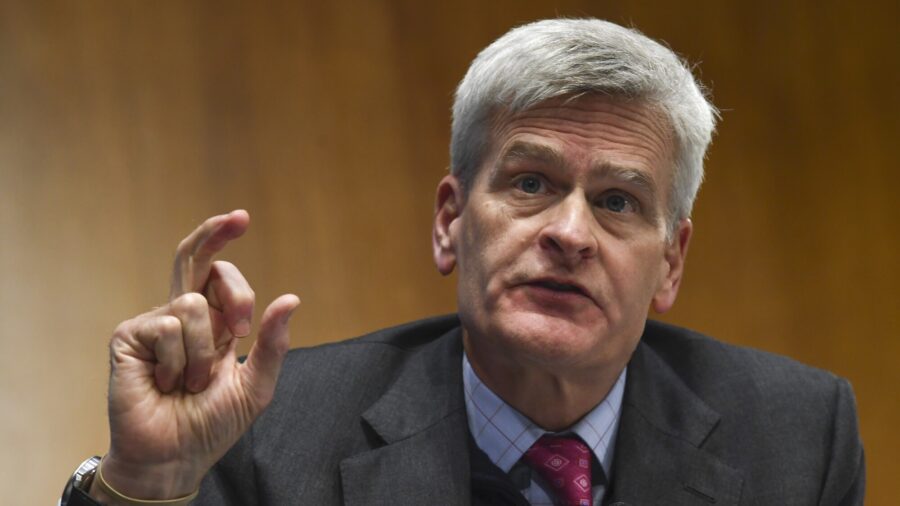The GOP’s COVID-19 relief proposal unveiled by 10 Republican senators totals $600 billion—less than a third of the plan President Joe Biden is pursuing—Sen. Bill Cassidy (R-La.), who is involved in the effort, said Sunday.
Cassidy said during an appearance on “Fox News Sunday” that the Republican framework for a COVID-19 economic relief package includes $1,000 direct payments to individuals with certain income levels, without elaborating.
It would also slash school funding, offering $20 billion instead of Biden’s $170 billion, Cassidy said.
His remarks came after the group of senators, led by Sen. Susan Collins, sent a letter to the president stating that their counterproposal will include $160 billion for vaccines, testing, treatment, and personal protective equipment, and call for more targeted relief than Biden’s plan to issue $1,400 stimulus checks for most Americans
“In the spirit of bipartisanship and unity, we have developed a COVID-19 relief framework that builds on prior COVID assistance laws, all of which passed with bipartisan support,” they wrote. “Our proposal reflects many of your stated priorities, and with your support, we believe that this plan could be approved quickly by Congress with bipartisan support.”
The president has proposed a $1.9 trillion plan, with $400 billion to curb the transmission of COVID-19 and ramp up vaccine capabilities, and $1 trillion in direct financial aid for families.
A number of Republicans have expressed shock over the cost of Biden’s proposed package. It’s more than double a package Congress passed and former President Donald Trump signed late last year.
Republicans have questioned why the proposal includes items not directly related to the COVID-19 pandemic, such as a federal minimum wage hike.
Some still oppose stimulus checks to most Americans, arguing that form of relief should be more targeted.
Biden meanwhile on Sunday extended a White House invitation to the group of senators, hours after he had received their letter calling for a bipartisan deal on COVID-19 relief.
White House Press Secretary Jen Psaki said in a statement late Sunday that the president and Collins had a discussion, and he “invited her and other signers of the letter to come to the White House early this week for a full exchange of views.”
“As has been widely reported, the President received a letter today from 10 Republican Senators asking to meet with him to discuss their ideas about the actions needed to address these crises,” the press secretary said.
Psaki however emphasized the need for a large-scale proposal amid the CCP (Chinese Communist Party) virus pandemic. It is unclear whether congressional Democrats are planning to move ahead without Republican support.
“With the virus posing a grave threat to the country, and economic conditions grim for so many, the need for action is urgent, and the scale of what must be done is large,” Psaki said in her statement. “As leading economists have said, the danger now is not in doing too much: it is in doing too little. Americans of both parties are looking to their leaders to meet the moment.”
The House and Senate are on track to vote as soon as this week on a budget resolution, which would lay the groundwork for passing an aid package under rules requiring only a simple majority vote in the closely divided Senate.
The goal is for passage by March, when extra unemployment assistance and other pandemic aid expires.
Among those invited to the White House relief talks are GOP Sens. Lisa Murkowski of Alaska, Mitt Romney of Utah, Shelley Moore Capito of West Virginia, Todd Young of Indiana, Jerry Moran of Kansas, Mike Rounds of South Dakota, and Thom Tillis of North Carolina.
The Associated Press contributed to this report.

